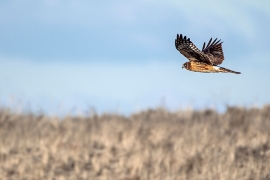
Those who put £5,000 into an ISA at the beginning of each tax year since 1999 instead of at the end would now be over £19,000 better off, despite saving precisely the same amount.
That extra year of investment, when compounded over the years, makes an awful lot of difference. It equates to almost four additional years of contributions. The data is based on investment into the average global equity fund and the statistics clearly favour early bird ISA investing over last-minute ISA investing.
This tax year has so far been positive for the market, with a global fund returning 17.6% since 6 April 2023, according to Morningstar data running to 22 March 2024. This means a £20,000 ISA investment into a global fund made by an early bird at the beginning of this tax year is already worth £23,520 by the time last minute ISA investors are arriving at the party.
Early birds might not always get this lucky. But even if you happen to invest at a dreadful time, in the long term you can still expect to come up smelling of roses if you put money to work in the market sooner rather than later.
Early bird ISA investors in April 2008 would have had to watch their investment plummet by 23% over 12 months as the financial crisis rocked the global stock market. But even so, by following the same strategy each year, early birds starting their investment plan in 2008 would now be £13,585 ahead of comparable last minute ISA investors.
| Starting in | Total contributions | Early bird ISA value | Last minute ISA value | Difference |
|---|---|---|---|---|
| Tax year 1999/00 | £125,000 | £401,643 | £382,385 | £19,259 |
| Tax year 2008/09 | £80,000 | £192,418 | £178,833 | £13,585 |
Sources: AJ Bell, Morningstar to 22 March 2024. Based on a £5,000 ISA contribution made on the first or last day of each tax year into the IA Global Sector average
Looking at DIY investors on the AJ Bell platform, it’s noticeable how many early bird ISA investors use all of their ISA allowance right away.
In the last two years, 36% of early bird ISA investors used all their £20,000 ISA allowance right away in April. This compares to more like 5% in other months of the year.
This suggests there are a significant cohort of investors who have cash or investments burning a hole in their pocket each year that they want to get tucked up in a tax shelter as soon as possible.
Doing so at the beginning rather than at the end of the tax year means protecting your investments from dividend and capital gains tax for an extra twelve months. Hence why these early bird ISA investors are keen as mustard to use their allowance as soon as the new tax year rolls around.
The early bird tax advantage could be especially valuable this year seeing as the dividend allowance is being cut to £500. If you’re already using the £500 allowance elsewhere, a £20,000 early bird contribution invested in a portfolio yielding 4% would save a higher rate taxpayer £270 in dividend tax compared to a last-minute ISA investor holding the same portfolio outside the tax shelter until the end of the year.
| Dividend tax 2024/25 | ||
|---|---|---|
| Early bird ISA | Last minute ISA | |
| £500 dividend allowance available | ||
| Basic rate | £0.00 | £26 |
| Higher rate | £0.00 | £101 |
| Additional rate | £0.00 | £118 |
| £500 dividend allowance used elsewhere | ||
| Basic rate | £0.00 | £70 |
| Higher rate | £0.00 | £270 |
| Additional rate | £0.00 | £314.80 |
Source: AJ Bell, based on a £20,000 portfolio yielding 4%, assuming all dividends are paid within the tax year
Of course, many people leave their ISA contribution to the end of the tax year as they don’t have the money available right away or are waiting until the last minute to see how much they can afford to stash in the tax shelter.
It still makes sense in these circumstances to use the tax shelter as soon as possible, because when the new tax year rolls around, the old allowance is gone for good.
Related content
- Tue, 23/04/2024 - 16:41
- Wed, 17/04/2024 - 13:32
- Thu, 11/04/2024 - 15:20
- Thu, 11/04/2024 - 14:34
- Thu, 04/04/2024 - 17:13

